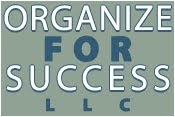As a leader, you have big, hairy, audacious goals for your team; however, it is much more difficult (if not impossible) to meet those goals when your team members are not on the same page, not working towards the same objectives and not carrying their respective shares of the workload. Instead of success, the results are more like a rowing team with members not rowing in tandem or in the same direction at the same time: you start spinning in circles, not moving at all or moving backwards. Sadness!
Ensure folks are on the same page, working towards the same objectives and carrying their respective shares of the workload by holding each member of your team accountable, both for the elements in their job descriptions as well as the core values to be exhibited by members of your team. To facilitate that accountability, you must do the following:
- determine when each team member will need to report back to you and explain his or her actions
- determine what consequences will occur when completed actions fulfill versus do not fulfill the leader's and team's necessary functions
- inform team members of what you have determined
- follow through on getting those explanations when deemed appropriate and carrying out the subsequent consequences, whether rewards or punishments
Beyond those initial steps, for a system of accountability to truly succeed, I've found that your employees must trust and believe there is a fair and accurate process for keeping track of their actions as well as tying their behavior to real consequences. I believe such a scenario can be created with regular checkins of the leader directly connecting with each team member, ongoing open communication and a concerted emphasis on feedback from employees leading to action on your part.
As you develop a culture of accountability and the habits of holding team members accountable, remember the following key points:
- Employees will assume their behavior is correct unless it is corrected... Set expectations clearly.
- Holding people accountable is only 90% communication and problem-solving; the other 10% is the discipline to keep at it and follow through. No, this aspect of discipline and follow through is certainly not easy; however, it is vital.
- You as the leader may never feel truly comfortable holding your team members accountable; there may always be a point of hesitation right before you hold someone accountable for their actions where a voice inside your head says "Maybe I should let this slide..." However, your responsibility as a leader is to forge ahead for the greater good of the team's success.
As leaders and managers, often, our main fear in holding people accountable is that our interaction with that person will turn emotional, whether angry, sad or something else. To move beyond that hesitation, understand that emotion can be a good thing as it will drive change to take place.
Take steps TODAY to start laying the groundwork for your team's greater success:
- Clearly spell out expectations in advance.
- Track employee performance every step of the way.
- Follow through with real consequences based on whether or not your employee's actual performance meets your conveyed expectations.
- Focus hourly, daily, weekly, monthly, quarterly and annually on actions the team member can truly control.
How do you utilize accountability now? Have you seen greater success by holding team members accountable? How can you implement greater accountability?


No comments:
Post a Comment